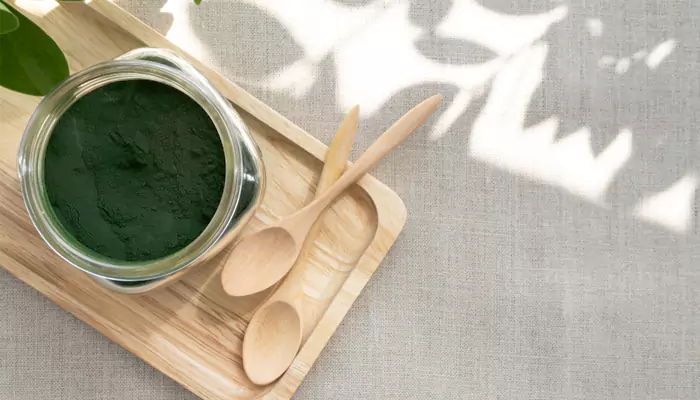Chlorella Vs. Spirulina – Which One Should You Opt For?
In the world of superfoods, two green powerhouses often come up in conversation: chlorella and spirulina.
- Ishani Karmakar
- 04 June, 2025
- 2 mins ago

Chlorella Vs. Spirulina – Which One Should You Opt For?
In the world of superfoods, two green powerhouses often come up in conversation: chlorella and spirulina.
Both are nutrient-dense algae packed with health benefits, but they have their own unique properties that might make one more suitable for you than the other. If you’ve been wondering whether to add chlorella or spirulina to your diet, this article will help you make an informed decision.
What is Chlorella?
Chlorella is a single-celled, freshwater green algae that has been around for over two billion years. It’s known for its rich chlorophyll content, which gives it its vibrant green colour. One of chlorella’s most notable features is its ability to bind to heavy metals and toxins, making it a powerful detoxifying agent. This makes it particularly appealing for those looking to cleanse their bodies of environmental pollutants.
Nutritionally, chlorella is packed with vitamins, minerals, and antioxidants. It’s a good source of vitamin B12, iron, and omega-3 fatty acids, making it a popular supplement for vegetarians and vegans. Additionally, chlorella contains a unique compound called chlorella growth factor (CGF), which is believed to promote cell regeneration and repair, contributing to overall health and vitality.
What is Spirulina?
Spirulina is also a type of blue-green algae, but unlike chlorella, it thrives in both fresh and saltwater environments. Spirulina has been consumed for centuries, with evidence of its use dating back to the Aztecs. It’s renowned for its high protein content—considered one of the richest plant-based sources of protein—containing all essential amino acids, which makes it a complete protein.
Beyond protein, spirulina is a rich source of vitamins, particularly B vitamins, and minerals such as iron, calcium, and magnesium. It also boasts a high concentration of antioxidants, including phycocyanin, which gives spirulina its distinctive blue-green colour and is known for its anti-inflammatory and immune-boosting properties.
Nutritional Comparison: Chlorella Vs. Spirulina
While both chlorella and spirulina are nutrient powerhouses, they differ slightly in their nutritional profiles.
Protein Content
Spirulina has the upper hand when it comes to protein, offering about 60-70% protein by weight, compared to chlorella’s 50-60%. If you’re looking to boost your protein intake, especially on a plant-based diet, spirulina might be the better choice.
Chlorophyll Content
Chlorella contains more chlorophyll than spirulina, making it a superior detoxifier. Chlorophyll is known for its ability to purify the blood, improve liver function, and promote healthy skin.

Omega-3 Fatty Acids
Chlorella is richer in omega-3 fatty acids, which are essential for brain health, reducing inflammation, and supporting heart health. If these benefits are a priority for you, chlorella could be the way to go.
Antioxidants
Both algae are high in antioxidants, but spirulina’s phycocyanin content gives it an edge in fighting oxidative stress and inflammation. This makes spirulina a strong candidate for those looking to support their immune system and reduce inflammation.
Choosing the Right One for You
So, should you opt for chlorella or spirulina? The answer depends on your health goals and dietary needs.
If you’re looking to detoxify and cleanse your body: Chlorella is the better option due to its high chlorophyll content and ability to bind to toxins.
If you’re focused on boosting your protein intake and immune system: Spirulina is the way to go, thanks to its complete protein profile and antioxidant-rich phycocyanin.
If you want to support heart health with omega-3 fatty acids: Chlorella might be more suitable.
If you’re aiming to reduce inflammation and enhance overall vitality: Spirulina’s anti-inflammatory properties make it a strong contender.
Ultimately, both chlorella and spirulina offer incredible health benefits, and you can’t go wrong with either choice. Some people even choose to incorporate both into their diet to reap the full spectrum of benefits. Whether you opt for chlorella’s detoxifying power or spirulina’s protein punch, adding these superfoods to your routine can contribute to your overall health and well-being. Remember, it’s always a good idea to consult with a doctor before starting any new supplement.







